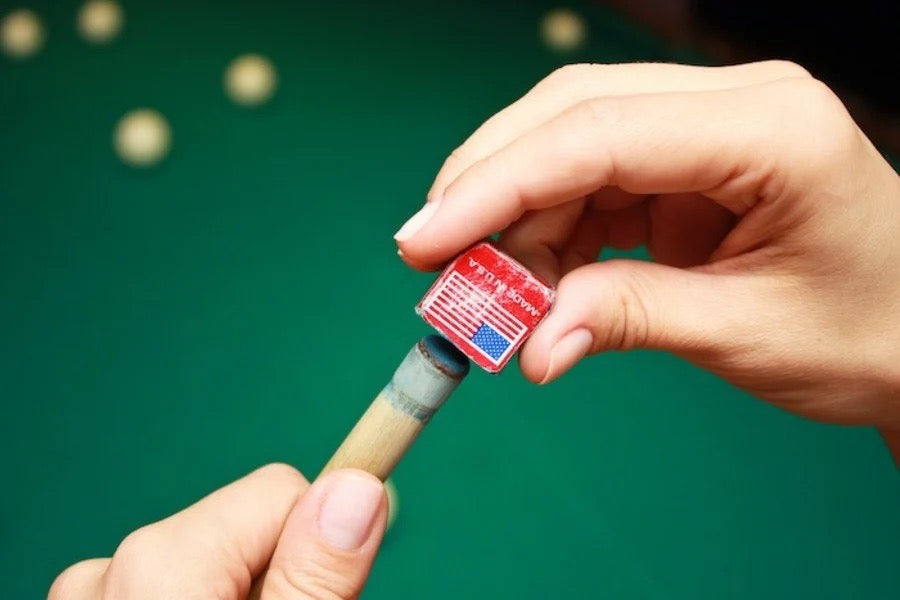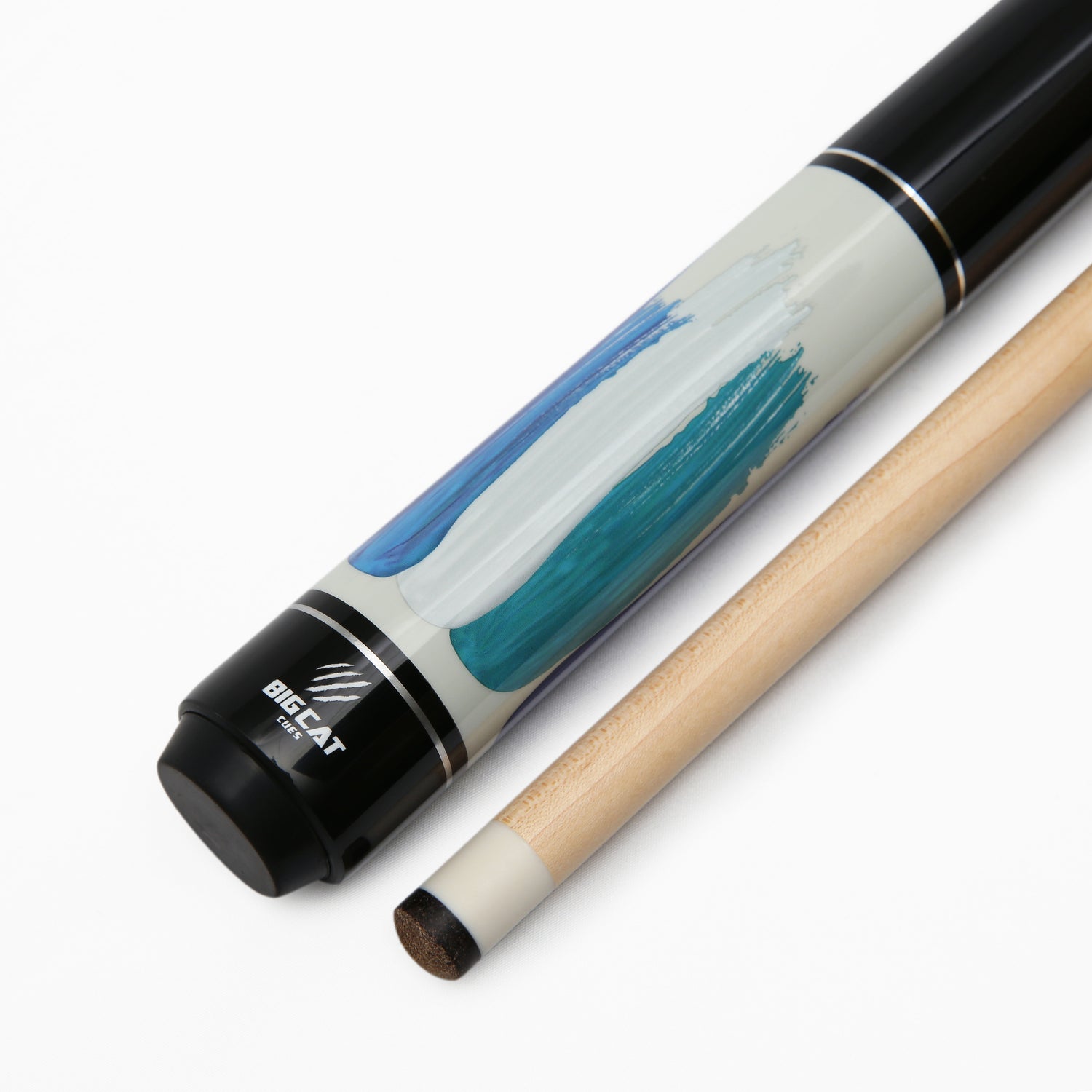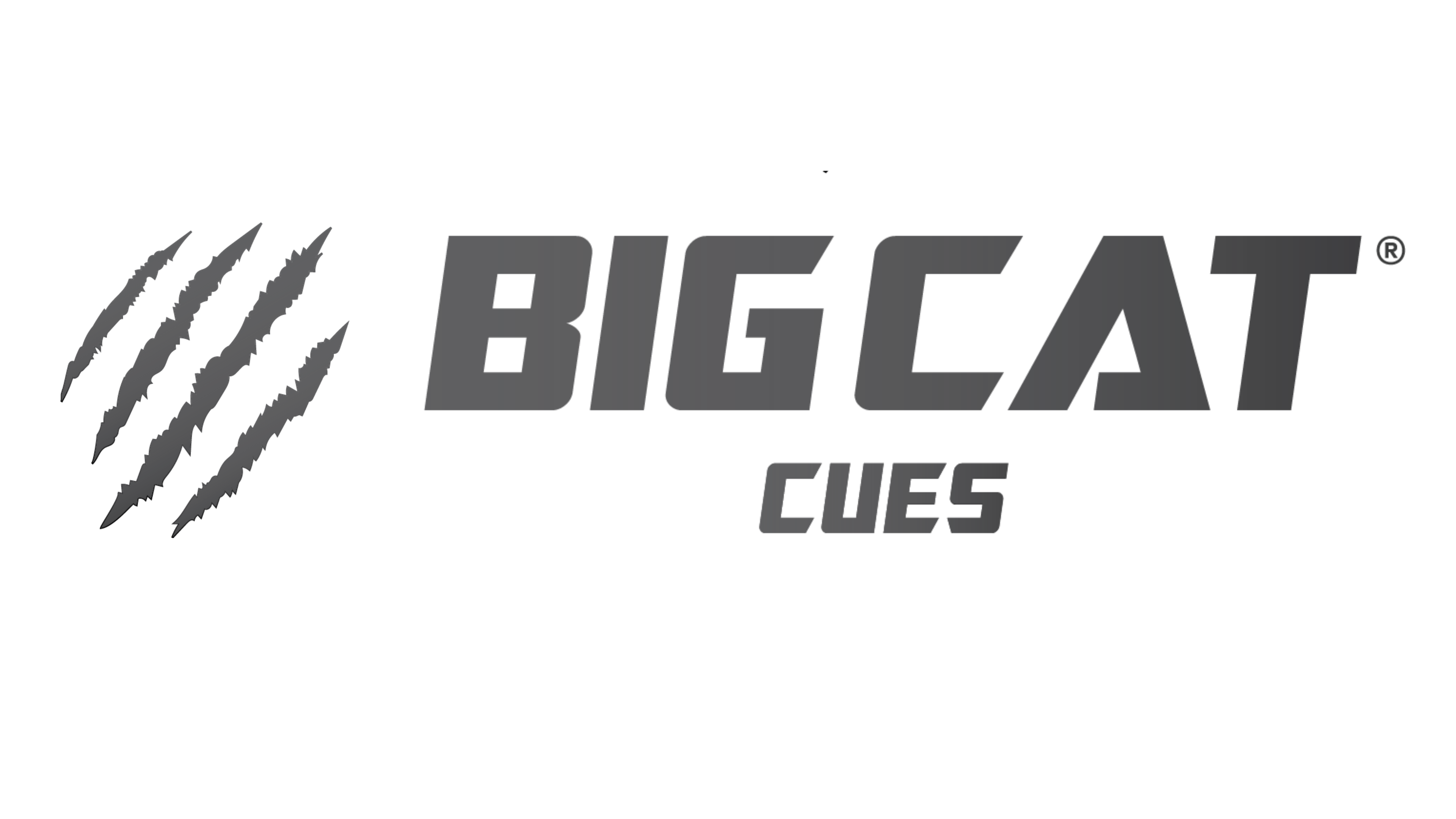
What Does The Chalk Do In Pool? (Expert Explanation)
Key Takeaways
-
What does the chalk do in pool? Pool cue chalk adds friction between your cue tip and the cue ball, helping you avoid slipping off the ball and making spin shots more accurate and reliable.
-
Regular use of billiards chalk forms a protective layer that keeps your cue tip textured, reducing wear and helping it last longer with consistent performance.
-
A smooth, even layer of pool stick chalk not only allows for better follow-through and moisture control but also makes your shots feel more predictable and polished.

What does the chalk do in pool
Want a cue that performs as smooth as a perfectly chalked tip? Visit Big Cat Cues for top-quality cues designed for precision, spin, and control.
What Is A Pool Stick Chalk?
Pool cue chalk is a powdery substance that players rub on the tip of their cue stick before taking a shot. Its main purpose is to increase friction between the cue tip and the cue ball. This helps prevent the tip from slipping off the ball at contact, which can cause a miscue.
By using billiards chalk, players can also apply spin (English) more accurately, improving control over the cue ball. Chalk is usually applied before every shot, especially when spin is involved. It's a simple tool but essential for consistent and accurate play in billiards.
See more: Best Pool Chalk: Top Picks to Elevate Your Game
Why Use Chalk on a Pool Cue?
To understand why we use chalk in pool, think about how the cue tip and cue ball interact. Both are round and made from materials that don’t naturally grip—leather on the cue, and a smooth polymer on the ball.
So, when you try to hit the cue ball anywhere but the center, your cue tip can easily slip off. This is what causes a miscue.
That’s where pool cue chalk comes in. Chalk adds a rough, gritty layer to the tip, creating friction between your pool stick and the cue ball. This grip helps you apply spin, like draw (backspin), follow (topspin), or english (sidespin), without slipping off the ball.
Without billiards chalk, it’s hard to control the cue ball, especially for more advanced shots. So, chalking before every shot isn’t just a habit but a must if you want accuracy, spin, and fewer missed shots.
What Does The Chalk Do In Pool?
1. Secure Your Tip
Pool chalk isn’t just for better grip, but also helps protect your cue tip. Every time your cue tip hits the cue ball, there's friction and pressure that slowly wears it down, making the surface too smooth for accurate shots. That’s where pool cue chalk comes in.
By adding a thin layer of chalk, you create a buffer between the cue tip and the hard surface of the ball. This helps your pool stick chalk preserve the rough texture needed for control and spin. Over time, this simple step can keep your billiard chalk tip in good condition longer, saving you money and reducing the need for constant replacements.
Just remember: a little goes a long way. Using too much chalk too often can have the opposite effect and wear the tip down faster.

Chalk helps to protect your tip. Source: A&C Billiards & Barstools
2. Smoothen Your Shot
Besides helping with grip, pool cue chalk also smooths out your shots by filling in tiny imperfections on the cue ball. Over time, balls can get small dents, scratches, or nicks from frequent play.
When you chalk your pool stick, a bit of that billiards chalk transfers to the ball at impact.
This chalk can settle into those tiny flaws, helping the cue ball react more predictably when struck.
In short, even if the ball isn’t in perfect condition, chalk helps you keep your shots consistent and reliable. It’s a small trick that makes a big difference, especially on older tables or worn-out balls.
3. Allow Consistent Contact
Chalking your cue tip helps make every shot feel the same, and that’s a big deal in pool.
A light layer of pool cue chalk ensures smooth, even contact between your cue tip and the ball. Without it, your shots can feel off or unpredictable, making it tough to build confidence and rhythm.
By using pool stick chalk regularly, you get consistent feedback with every stroke, which leads to better accuracy and smoother gameplay.
4. Better Spin Control
One of the biggest benefits of using pool cue chalk is how it helps you control spin.
Chalk adds just enough friction between your cue tip and the ball, allowing you to apply backspin, topspin, or sidespin with more accuracy. This is especially important when you need to position the cue ball for your next shot or pull off a tricky angle.
Without chalk, your cue tip could slip off the ball too easily, making spin shots unreliable.
Therefore, whether you’re using pool stick chalk for finesse or power, it gives you the grip needed to control the game. Simply put, billiards chalk turns good shots into great ones.

Chalk allows better spin control. Source: Wikipedia
5. Reduce Extra Moisture
When your hands get sweaty or the air is humid, your pool cue chalk does more than help with grip; it absorbs that extra moisture. This helps keep your cue tip dry and steady, preventing unwanted slips that could throw off your shot.
Even a little moisture can mess with your control. Thus, billiard chalk acts like a shield against it.
By using pool stick chalk, you're not only improving your shot accuracy in the moment, but you're also helping your tip last longer.
It’s a small habit that makes a big difference, both for your performance and your gear.
6. Avoid Slippage
When you're following through on a shot, the last thing you want is your cue slipping off the ball too soon. That’s where pool cue chalk comes in.
By adding chalk, you give your tip a little more grip, helping it stay in contact with the cue ball just a fraction longer.
This slight increase in contact time can improve your accuracy and shot power. It also makes your follow-through smoother and more controlled.
So, when you use pool stick chalk, you're not just prepping for the shot, you’re making sure your cue delivers exactly what you intended, every time. That’s the real value of billiards chalk.
How To Apply Chalk To Your Pool Cue?
Most players know they need pool cue chalk, but not everyone knows how to apply it correctly.
A common mistake is twisting the chalk back and forth onto the tip like you’re screwing on a cap. This actually removes chalk as you go, leaving uneven patches and reducing its effectiveness.
The right way? Simply wipe the chalk across the tip in a straight motion while slowly turning your pool stick. This spreads the billiard chalk evenly across the tip, which helps prevent miscuing and keeps your shots smooth and consistent.

Wipe the chalk across the tip in a straight motion to apply chalk. Source: Ozone Billiards
So when you ask, "what does the chalk do in pool?", the answer depends on how well you apply it. An even layer of chalk gives you the control, spin, and grip you need to play your best.
Frequently Asked Questions
1. What is the point of chalk in a pool?
The main purpose of pool cue chalk is to create friction between the cue tip and the cue ball. This helps prevent the tip from slipping off when you strike the ball, especially during spin shots. Chalk also helps with control, accuracy, and consistency, making it easier to perform advanced moves like draw or english.
2. Can you play pool without chalk?
Yes, you can technically play without billiards chalk, but your chances of miscuing go way up. Without chalk, the smooth surfaces of the cue tip and ball are more likely to slide against each other, making it harder to hit spin shots or play accurately.
3. How often should you chalk your cue?
Most players chalk their cue before every shot, especially when using spin. It's a good habit because it ensures your tip has enough grip to avoid slipping. If you're not using spin or just making a simple shot, you might not need to chalk every time, but for consistent performance, chalking regularly is best.
4. Do pro pool players use chalk?
Absolutely. All pro pool players use chalk, it’s a basic but essential part of the game. They usually use high-quality brands and apply it before almost every shot. Even the best players can miscue without chalk, so it's a simple way to keep their shots clean, controlled, and accurate.


